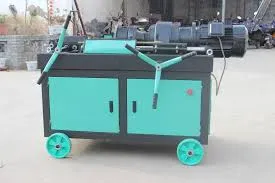
-
 Afrikaans
Afrikaans -
 Albanian
Albanian -
 Amharic
Amharic -
 Arabic
Arabic -
 Armenian
Armenian -
 Azerbaijani
Azerbaijani -
 Basque
Basque -
 Belarusian
Belarusian -
 Bengali
Bengali -
 Bosnian
Bosnian -
 Bulgarian
Bulgarian -
 Catalan
Catalan -
 Cebuano
Cebuano -
 Corsican
Corsican -
 Croatian
Croatian -
 Czech
Czech -
 Danish
Danish -
 Dutch
Dutch -
 English
English -
 Esperanto
Esperanto -
 Estonian
Estonian -
 Finnish
Finnish -
 French
French -
 Frisian
Frisian -
 Galician
Galician -
 Georgian
Georgian -
 German
German -
 Greek
Greek -
 Gujarati
Gujarati -
 Haitian Creole
Haitian Creole -
 hausa
hausa -
 hawaiian
hawaiian -
 Hebrew
Hebrew -
 Hindi
Hindi -
 Miao
Miao -
 Hungarian
Hungarian -
 Icelandic
Icelandic -
 igbo
igbo -
 Indonesian
Indonesian -
 irish
irish -
 Italian
Italian -
 Japanese
Japanese -
 Javanese
Javanese -
 Kannada
Kannada -
 kazakh
kazakh -
 Khmer
Khmer -
 Rwandese
Rwandese -
 Korean
Korean -
 Kurdish
Kurdish -
 Kyrgyz
Kyrgyz -
 Lao
Lao -
 Latin
Latin -
 Latvian
Latvian -
 Lithuanian
Lithuanian -
 Luxembourgish
Luxembourgish -
 Macedonian
Macedonian -
 Malgashi
Malgashi -
 Malay
Malay -
 Malayalam
Malayalam -
 Maltese
Maltese -
 Maori
Maori -
 Marathi
Marathi -
 Mongolian
Mongolian -
 Myanmar
Myanmar -
 Nepali
Nepali -
 Norwegian
Norwegian -
 Norwegian
Norwegian -
 Occitan
Occitan -
 Pashto
Pashto -
 Persian
Persian -
 Polish
Polish -
 Portuguese
Portuguese -
 Punjabi
Punjabi -
 Romanian
Romanian -
 Russian
Russian -
 Samoan
Samoan -
 Scottish Gaelic
Scottish Gaelic -
 Serbian
Serbian -
 Sesotho
Sesotho -
 Shona
Shona -
 Sindhi
Sindhi -
 Sinhala
Sinhala -
 Slovak
Slovak -
 Slovenian
Slovenian -
 Somali
Somali -
 Spanish
Spanish -
 Sundanese
Sundanese -
 Swahili
Swahili -
 Swedish
Swedish -
 Tagalog
Tagalog -
 Tajik
Tajik -
 Tamil
Tamil -
 Tatar
Tatar -
 Telugu
Telugu -
 Thai
Thai -
 Turkish
Turkish -
 Turkmen
Turkmen -
 Ukrainian
Ukrainian -
 Urdu
Urdu -
 Uighur
Uighur -
 Uzbek
Uzbek -
 Vietnamese
Vietnamese -
 Welsh
Welsh -
 Bantu
Bantu -
 Yiddish
Yiddish -
 Yoruba
Yoruba -
 Zulu
Zulu
Efficient Roller Threading Machines for Precision Thread Production and Enhanced Performance Solutions
The Evolution and Importance of Roller Threading Machines in Modern Manufacturing
In today's fast-paced manufacturing landscape, efficiency, precision, and reliability are paramount. One vital machine that epitomizes these qualities is the roller threading machine. Known for its ability to create robust and precise threads, this machine plays a crucial role across multiple industries, from automotive to construction. Understanding the mechanics and advantages of roller threading machines sheds light on their significant contribution to modern manufacturing.
What is a Roller Threading Machine?
A roller threading machine is a specialized tool used in the production of threaded components. Unlike traditional machining methods that cut threads, these machines utilize rolling techniques to form threads. This process involves the use of hardened steel rollers that apply pressure to a cylindrical workpiece, effectively displacing the material to create the desired thread profile. The result is a thread that is not only accurate but also exhibits increased strength due to work hardening.
The Advantages of Roller Threading Machines
1. Enhanced Durability and Strength One of the most significant advantages of roller threading is the increased durability of the threads produced. The rolling process compresses the material, leading to finer grain structures, which enhance the fatigue resistance and overall durability of the threaded components.
2. Precision Engineering Roller threading machines can achieve remarkable levels of precision. The technology allows for the production of intricate thread profiles at tight tolerances, ensuring that components fit perfectly without the need for extensive finishing processes.
3. Increased Production Speed The continuous nature of the rolling process enables higher production speeds compared to traditional cutting methods. This efficiency is crucial in high-volume manufacturing scenarios where time is money.
roller threading machine product

4. Material Savings Since roller threading machines do not remove material but instead displace it, there is less waste generated in the process. This attribute not only makes roller threading more cost-effective but also aligns with modern manufacturing trends towards sustainability.
5. Versatility These machines can be used on a variety of materials, including high-strength alloys and plastics, making them versatile assets in any manufacturing facility. This adaptability ensures they can cater to diverse industrial requirements.
Applications in Various Industries
Roller threading machines are employed in numerous sectors. In the automotive industry, they are used to produce components like bolts, screws, and fasteners that require high tensile strength. Likewise, in the construction and aerospace industries, reliable threaded connections are critical for safety and performance, making roller threading machines an essential part of the manufacturing process.
Automation and Future Trends
With the advancements in automation and smart manufacturing, roller threading machines are becoming increasingly integrated with digital technologies. Modern machines come equipped with sensors and software that enable real-time monitoring and data analysis, optimizing the threading process further. As Industry 4.0 continues to evolve, we can expect roller threading machines to play an even more significant role, enhancing efficiency and reducing downtime in production environments.
Conclusion
In conclusion, roller threading machines represent a key innovation in manufacturing technology. Their ability to produce high-strength, precise threaded components quickly and with minimal waste makes them invaluable in today’s competitive landscape. As industries continue to demand higher efficiency and reliability, the roller threading machine will remain at the forefront of manufacturing solutions, driving progress and supporting the needs of various sectors. Embracing this technology can lead to significant advancements in production capabilities and product quality, ensuring that companies stay ahead in an ever-changing market.
